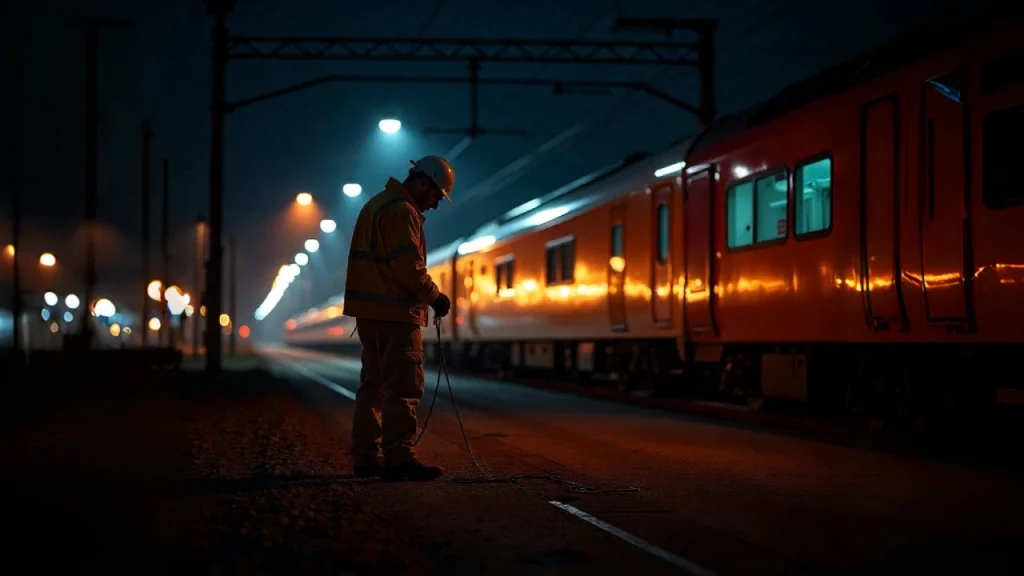- Nokia partners with Deutsche Bahn to roll out the first commercial 1900 MHz 5G radio network (band n101) on live test tracks, advancing the FRMCS standard.
- The deployment aims to ensure resilient, efficient and sustainable rail operations through automation, real-time monitoring and modernised communications.
What happened: Nokia builds rail FRMCS network
Nokia and Deutsche Bahn (DB) have deployed the world’s first commercial 1900 MHz (n101) 5G radio network with a 5G Standalone core on live outdoor test tracks. The rollout, which includes Nokia’s AirScale radio access equipment, supports the Future Railway Mobile Communication System (FRMCS) and replaces legacy GSM-R systems.
Located in DB’s test field in the Ore Mountains (Erzgebirge, Germany), the network runs on live trains, featuring built-in failover, self-healing and real-time monitoring. Rainer Fachinger, Head of Telecom Platforms at DB InfraGO, says: “Collaborating with technology experts like Nokia is key for DB to bring the latest innovations into our real-world operations.” The deployment also aligns with the European FP2-MORANE-2 project, which advances the digitalisation of rail across Europe.
Also read:Nokia and Deutsche Bahn launch first 1900 MHz 5G rail trial
Also read:Nokia teams up with Kongsberg for battlefield comms
Why it’s important
Railways require mission-critical communication systems that are reliable, low-latency and capable of handling automation and safety demands. The transition from GSM-R to FRMCS via Nokia’s 1900 MHz deployment marks a significant advancement in rail infrastructure modernisation. The new solution provides not only greater spectrum dedicated to 5G railway communications but also enhances communication capacity and service reliability.
By implementing this technology, Deutsche Bahn sets a benchmark in European rail for other operators considering FRMCS upgrades. The features such as real-time monitoring, redundancy and automated resilience reduce risks of service failures and improve safety. From a positive stance, this deployment demonstrates proactive industry leadership. Nokia’s approach mitigates future-proofing concerns, and DB benefits from modern infrastructure capable of supporting advanced rail automation and intelligent infrastructure. The initiative indicates that rail networks that adopt FRMCS early will be more efficient, reliable and competitive.

